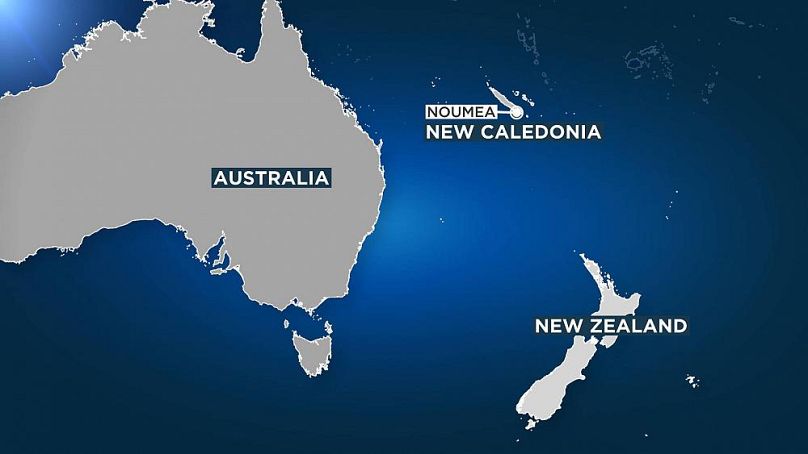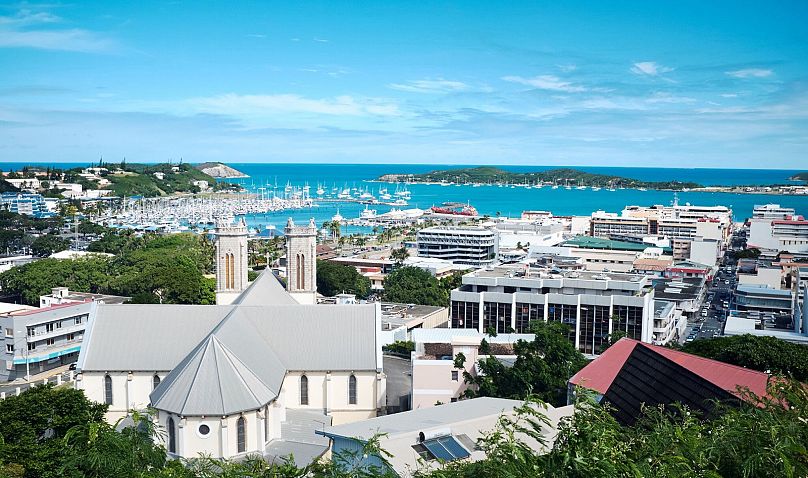The vote is the second referendum on independence in two years. Campaigners for separation from France feel victory this time is within their grasp.
With its electric blue ocean and expansive white-sand shores, it is arguably one of the most serene corners of the European Union. But at some 16,296 km from Brussels, lying off the north-east coast of Australia, it is also one of the furthest flung enclaves of the bloc.
It's here, in the archipelago of New Caledonia, that Europe's most consequential debate over self-determination is taking place. While struggles for independence in places like Scotland and Catalonia more often than not steal the headlines in the European press, the fate of this Pacific island chain could have far-reaching consequences for one of the EU's major players - France.
Today (Sunday), New Caledonian voters will head to the polls to decide the destiny of their territory, its second referendum on the issue of independence in two years.
The first vote in November 2018 - in which "No" campaigners secured a tepid majority of 56.6 per cent in favour of keeping the territory firmly affixed to France - saw a surprising swing towards secession. If this direction of travel were to continue, Sunday's vote is likely to be tight. But what bearing does it really have on Europeans tens of thousands of kilometres away?
Colonial legacy laid bare
First acquired by France in 1853, New Caledonia has remained in the French orbit - as a dependency, then as an overseas territory - for the best part of 170 years. With the impact of the Black Lives Matter movement firmly felt around the world, countries like France are being forced to be introspective and examine their colonial pasts.
New Caledonia, while functioning with a degree of home rule with its own congress and local administrations for the last 30 years, continues to be regarded as a vestige of this colonial era, particularly by the indigenous Melanesian people, known as Kanak.
Kanak make up just under 40 per cent of the archipelago's population, while ethnic Europeans and South Asians - the descendants of the first settlers and indentured servants from France's Indochina colonies - make up the rest along with recent migrants from France and other Pacific islands enticed by the islands' nickel mining boom in the late 1960s.
The legacy of colonialism has proven to be a particularly unstable faultline, one which has seen frictions spill over into near civil war in recent decades. Following violent clashes, including the murder of four gendarmes as well as more than 20 hostage-takers and negotiators at the bloody Ouvéa cave hostage-taking in 1988, the French government and Kanak leaders signed a series of agreements, the most important being the 1998 Nouméa Accord.
This agreement laid the foundations for the decolonisation of New Caledonia and its right to self-determination, ensuring three referenda would be held on the question of independence with a view to making a decisive transfer of power from Paris to Nouméa, the islands' capital, in the future.
While the overwhelming majority of the Kanak community is in favour of ending its union with France now, their voices aren't enough on their own to tip the scales. In order to win the plebiscite, Kanak campaigners are keenly aware of the need to sway the islands' other communities, a process the 2018 referendum shows is potentially already underway.
'We are confident'
"We believe in victory, or at least in a good progression for 'yes'," Mickaël Forrest, campaign manager for the pro-independence Kanak and Socialist National Liberation Front (FLNKS), told Euronews.
Campaigners like Forrest are assured that, one way or another, the once-solid ground is beginning to shift.
"We are confident because in 2018, we were 6.7 per cent off victory and since then, many young Kanak have registered on the referendum electoral list and there is a big mobilisation in the Loyalty Islands, which were not mobilised enough in 2018. Not to mention that we have noticed that many non-Kanak are no longer afraid to vote 'yes'".
The islands continue to have huge significance to France, not least because New Caledonians cast ballots in French presidential and parliamentary elections. They also have the right to vote in European Parliament elections as part of France's broad overseas constituency, which spans island territories around the globe from the Caribbean to the Pacific Ocean.
France's status as a global player rests heavily on having a presence in the Pacific region, not least as an ally of the US and Australia but as a foil to regional power China who has designs on expanding its influence further into the oceanic continent.
France is on the outside looking in when it comes to the process, having agreed on a path forward to decolonise the islands with the Nouméa Accords. For pro-independence supporters, then, the referendum is not a question of trying to hamstring France but recalibrating the relationship between the colonised and coloniser.
"Independentists are clearly not in a logic of rupture with France because of the historical, human and cultural links that exist between the two countries, and because there are certain common strategic and economic interests," Forrest continued. "It is a question of redefining and rebalancing relations by moving from a dominator-dominated relationship to a win-win partnership".
Peaceful debate
With the spectre of unrest still fresh in many New Caledonians' minds, discussions over the thorny issue of independence has divided opinion. Tempers, on the other hand, haven't frayed thus far. For their part, this referendum is just a milestone in a long drive to achieve a new Kanak-infused state. One way or another, there is a sense of inevitability that keeps pro-independence supporters staying the course.
"Kanak independentists have accepted a long road to decolonise New Caledonia, both to better prepare the country and to give a chance to build a community of destiny with the other communities that have long been established in New Caledonia," said Forrest.
"But having chosen this long process, with three consultations at its end, will not change the meaning of history. Even if the 'no' vote prevails during the three consultations, France will have to give New Caledonia its sovereignty as it committed itself to do in the Nouméa Accord."
So, if there is another "no" vote on Sunday? "The mobilisation will continue during the third consultation because nothing will prevent the country from achieving sovereignty," Forrest assures.
The anti-independence campaign group les Loyalistes were also contacted by Euronews but hadn't responded at the time of publication.













